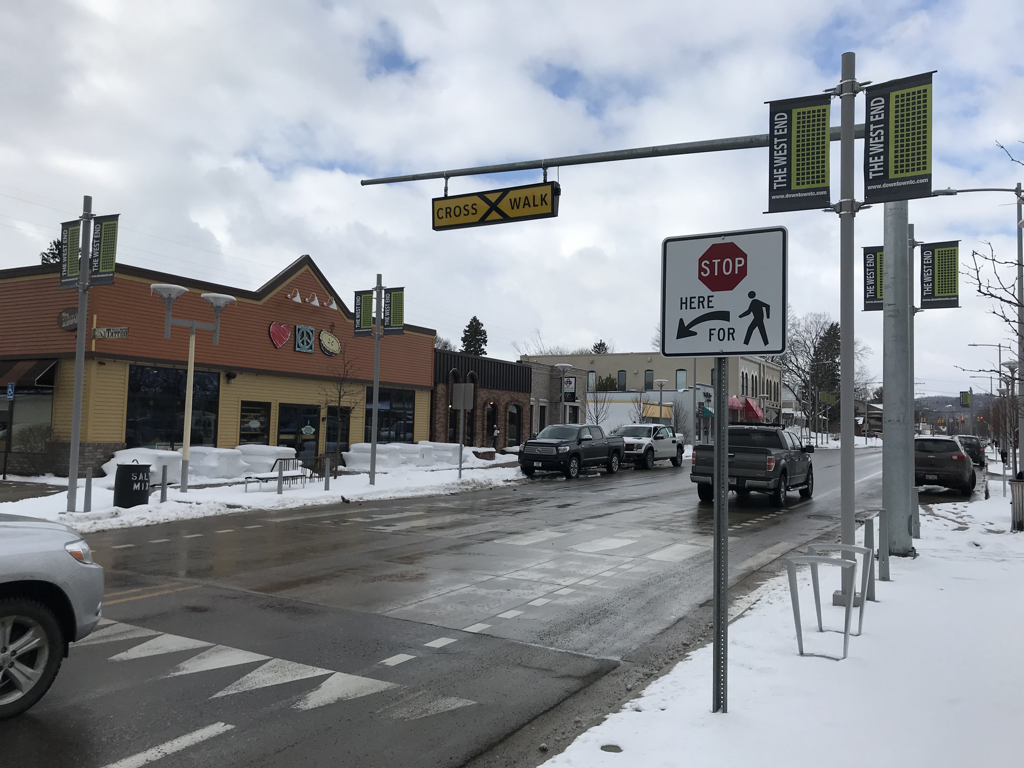|
Last week, I authored a piece in the Traverse City Record Eagle about the Michigan Municipal League’s assertion that the Great Lakes State’s municipal funding environment is “broken.” Despite 32 quarters of economic growth, Michigan cities, villages, townships and counties across the state are experiencing fiscal stress.
Anthony Minghine of the Michigan Municipal League has made presentations around the state about this problem, recently in my town of Traverse City. Minghine reported that Michigan is the only state in the Union that reduced its per capita funding for local government between 2002 and 2016. All other states had increased their funding, averaging 50%. There are a few key causes of Michigan’s fiscal fall. Michigan municipalities, cities, villages, townships and counties, rely heavily on property tax revenues. Minghine illustrated that Michigan tax code does not track with economic changes. Because of Proposal A passed in 1992, property values, which are free to fall during recessions, are not permitted to rise again at the same pace as the economy when times are good. This makes property values, and the property taxes they are based on, lag behind rising costs and needs. Furthermore, the so-called “Headlee rollback” penalizes municipalities for strong economic growth by reducing millage rates to soften the impact on tax payers. Taxing authorities can restore rates, but only with a vote of the people. Since 1980, Michigan’s population growth has been flat, hovering around 10 million residents. Meanwhile, the state’s infrastructure has doubled. This is largely because of suburban and exurban sprawl. More roads, bridges, sewers, fire stations, fire hydrants, etc. to serve an ever expanding geography of development. The extent of our built world strains Michigan communities’ dwindling resources used to serve it. And because most development in Michigan is sprawl versus urban development, it is low value. Urban development generates far more tax revenue per acre than low density growth. As an example, Joe Minicozzi of Urban 3 conducted a study in 2016 and found that downtown Traverse City generates 83 times the value per acre compared with Grand Traverse County! Some studies show than the cost per acre of urban development is about the same or slightly less than that of other kinds of development. This means that in Grand Traverse County, downtown Traverse City is heavily subsidizing other types of development in the county. Another reason local governments have lost funding ground is related to sales tax. Sales tax is a great way to reward building a strong economy, since tax collections grow as consumers prosper and spend. Unlike in many states where local government can collect sales tax, Michigan only allows the State to collect taxes on sold goods. In return, the State returns a portion of sales tax and other revenues to local governments, based on population, in what is called “revenue sharing.” Unfortunately, Michigan has reduced the portion they give locals as Lansing has struggled over the years to balance its budget. Something’s gotta give, and Michigan will have to fix local government funding. In the mean time, cities, villages, and other local units of government must be proactive and creative in funding their infrastructure and operating costs. Luckily, Michigan offers a number of tools that can help. Grants for downtown enhancements, and programs like brownfield, Main Street, DDA, and Principal Shopping Districts used in conjunction with other grants and private investment can create and support a vibrant business district and town.
0 Comments
Leave a Reply. |
AuthorRob Bacigalupi helped build one of the premier downtowns in the Midwest Archives
March 2020
Categories |

 RSS Feed
RSS Feed